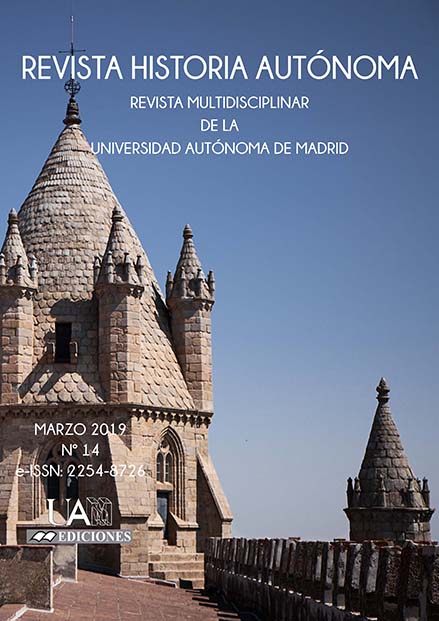Keywords:
European Economic Community, empty chair crisis, Francoist Spain, press, Luxembourg Compromise.Abstract
This article analyzes the vision of the Francoist Spain on the so-called “empty chair crisis”, a serious political and institutional conflict that disturbed the European Economic Community for seven months, between 30th June 1965 and 30th January 1966 and which ended with the signing of the Luxembourg Compromise, which partially limited the supranational ambitions of the Hallstein Commission and the Treaties of Rome.
The positions adopted by the Francoist government and the newspapers will confirm the existence in Spain of two essential ideas of Europe at the time, two visions largely opposed about the form that should take the Europe of the future and its institutions. On the one hand, the supporters of the progressive integration following a federal model and therefore of the demanding application of the letter and the spirit of the Treaties of Rome,
well represented by monarchical newspapers like ABC or La Vanguardia Española. On the other hand, the advocates of a Europe of nations, in which the nation-states would maintain intact their sovereignty, and which clearly influenced the Falangist press.
Downloads
References
Ayala Sörenssen, Federico, Fondos fotográficos del diario ABC, análisis documental, gestión y aplicaciones, tesis doctoral, Universidad Complutense de Madrid, 2013.
Barrera, Carlos, Periodismo y franquismo. De la censura a la apertura, Barcelona, Eiunsa, 1995.
Bossuat, Gérard, Histoire de l´Union européenne, Fondations, élargissements, avenir, París, Belin, 2009.
Couve de Murville, Maurice, Une politique étrangère, 1958-1969, París, Plon, 1971.
Fleites Marcos, Álvaro, “La restricción de las fuentes y otros mecanismos de control de la información internacional en la prensa española durante el franquismo desarrollista”, en Aït-Bachir, Nadia (ed.), Las fuentes en la prensa: verdades, rumores y mentiras (I), Burdeos, PUB, 2013, pp. 81-92.
Fuentes, Juan Francisco y Javier Fernández Sebastián, Historia del periodismo español, Madrid, Síntesis, 1997.
Monnet, Jean, Mémoires, París, Fayard, 1976.
Moreno Juste, Antonio, “Del «problema de España» a la «España europeizada»: excepcionalidad y normalización en la posición de España en Europa”, en Pereira Castañares, Juan Carlos (coord.), La política exterior de España, Barcelona, Ariel, 2003, pp. 295-318.
Sevillano Calero, Francisco, “La estructura de la prensa diaria en España durante el franquismo”, en Investigaciones históricas: Época moderna y contemporánea, 17 (1997), pp. 315-340.
Senantes Berandes, Heidy, España ante la integración europea (1962-1967): el largo proceso para la apertura de negociaciones, tesis doctoral, Universidad de Alicante, 2002.
Timoteo Álvarez, Jesús, “La información en la era de Franco: hipótesis interpretativa”, en Timoteo Álvarez, Jesús (ed.), Historia de los medios de comunicación en España. Periodismo, publicidad e imagen (1900-1990), Barcelona, Ariel, 1989.
Vaïsse, Maurice, La grandeur. Politique étrangère du général de Gaulle, 1958-1969, París, Fayard, 1998.
Zalbidea Bengoa, Begoña, “Prensa del Movimiento: los pasos contados hacia el aperturismo”, en Timoteo Álvarez, Jesús (ed.), Historia de los medios de comunicación en España. Periodismo, publicidad e imagen (1900-1990), Barcelona, Ariel, 1989, pp. 250-261.
Zaratiegui, Jesús María, Europa, de entrada, no (1963-1968), Pamplona, EIUNSA, 2014.
